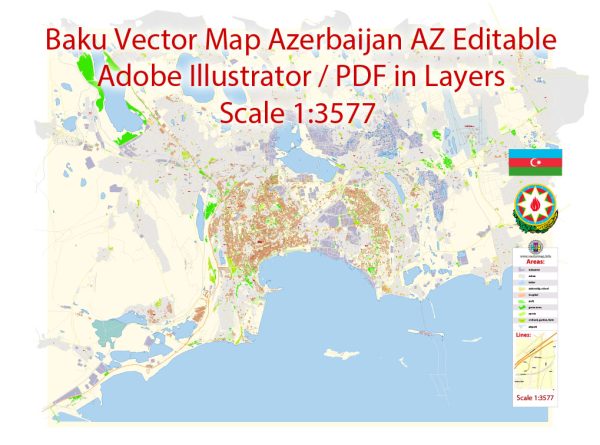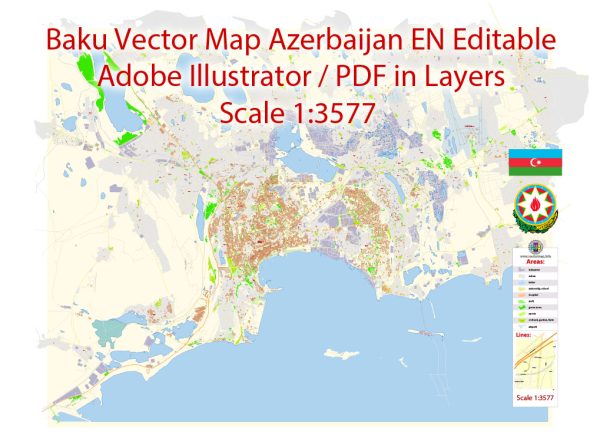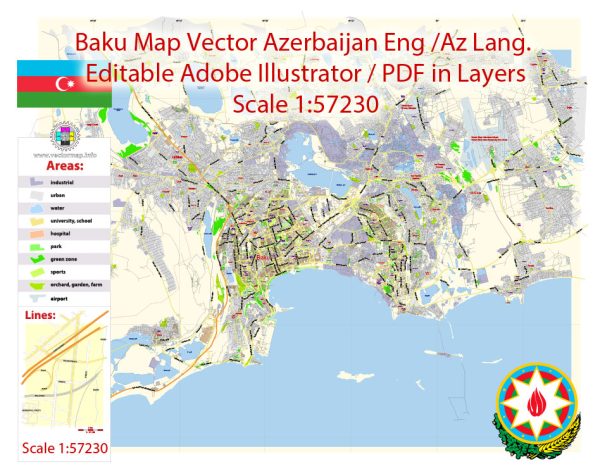Baku, the capital city of Azerbaijan, has a rich and diverse history that spans millennia. Its history is deeply intertwined with the region’s cultural, political, and economic developments. Here’s a brief description of Baku’s history:
- Ancient History: The area around Baku has been inhabited since ancient times. Archaeological evidence suggests human settlement in the region as far back as the 4th millennium BC. The city’s name is thought to have been derived from the Persian word “bad-kube,” meaning “wind-pounded city.”
- Persian and Islamic Rule: Baku’s early history was marked by various Persian empires’ control, including the Achaemenid, Parthian, and Sassanid dynasties. The Arab Caliphate later brought Islam to the region in the 7th century, influencing the local culture and architecture.
- Medieval Period: In the Middle Ages, Baku was a significant trading post along the Silk Road, connecting Europe and Asia. It was part of various empires, including the Seljuk, Mongol, and Timurid empires.
- Safavid and Ottoman Rule: In the 16th century, Baku came under the rule of the Safavid Empire, a Shia Muslim dynasty, which further shaped the religious and cultural landscape. Later, the city briefly fell under Ottoman control.
- Russian Empire: By the early 19th century, Baku became part of the Russian Empire following a series of Russo-Persian Wars. The discovery of oil in the 19th century transformed the city’s economy, leading to rapid growth and urban development.
- Soviet Era: After the Russian Revolution in 1917, Baku became part of the Azerbaijan Soviet Socialist Republic in 1920. During this period, the oil industry continued to thrive, and Baku played a crucial role in the Soviet economy.
- Independence: Azerbaijan declared its independence from the Soviet Union in 1991, and Baku became the capital of the newly independent nation. The city underwent significant political and economic changes during the transition to a market economy.
- Modern Baku: In the 21st century, Baku has experienced rapid urbanization and modernization. The city is known for its striking contemporary architecture, including the Flame Towers and Heydar Aliyev Center, designed by renowned architect Zaha Hadid.
- Cultural Heritage: Baku boasts a rich cultural heritage, with numerous historic landmarks, museums, and cultural institutions. The Old City (Icherisheher) is a UNESCO World Heritage Site, preserving its medieval architecture and historical character.
- Oil Industry: The oil industry continues to be a significant part of Baku’s identity and economy. The city is often referred to as the “City of Winds” and the “City of Oil” due to its historical connection with both natural resources and strong winds from the Caspian Sea.
Baku’s history reflects its position as a crossroads of various cultures and empires throughout the centuries, making it a city with a unique blend of influences and a dynamic modern outlook.




 Author: Kirill Shrayber, Ph.D. FRGS
Author: Kirill Shrayber, Ph.D. FRGS